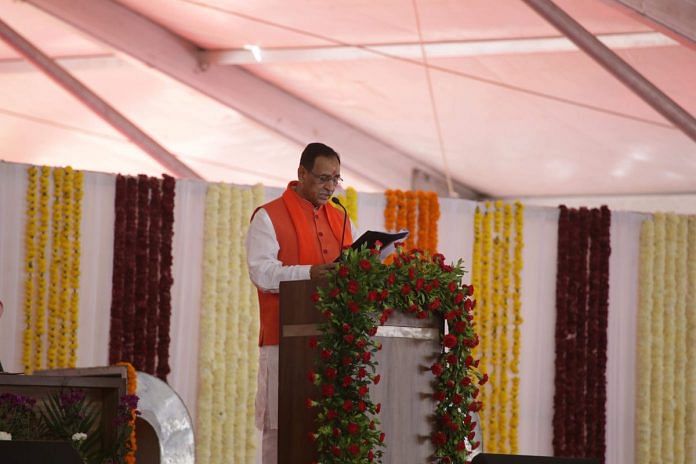A committee was set up to study separatist movements that were prevalent in India and report ways to neutralise them.
If you have switched to a television news channel over the last few days, chances are that you have been greeted with footage of either the returning chief minister of Gujarat or the new chief minister of Himachal Pradesh being sworn in. Both chief ministers took the oath of office, not to mention the oath of secrecy.
It is one of ten forms of oaths prescribed in the Third Schedule of the Constitution. All of them, except the two oaths of secrecy, require the oath taker to swear that they will “bear true faith and allegiance to the Constitution of India,” and “uphold the sovereignty and integrity of India.”
However, until 1963, no one taking a constitutional oath was required to swear that they would “uphold the sovereignty and integrity of India.”
But, that changed when the Constitution (Sixteenth Amendment) Act, 1963 came into effect. The Sixteenth Amendment expanded the forms of oath to ensure that “every candidate for the membership of a State Legislature or Parliament, and every aspirant to, and incumbent of, public office” – to quote its Statement of Objects and Reasons – “pledges himself . . . to preserve the integrity and sovereignty of the Union of India.”
The amendment gave effect to the recommendations of the Committee of National Integration and Regionalism. The committee had been set up to study separatist movements that were prevalent in India and was supposed to report on ways to neutralise them.
Ironically, Prime Minister Jawaharlal Nehru appointed C. P. Ramaswami Aiyar, a “staunch separatist” as the chair person of the committee. B. S. Raghavan, the first secretary of the National Integration Council had said that Aiyar had “moved earth and heaven for the continuance of the British Rule” as Dewan of Travancore, “even to the extent of goading the Chamber of Princes to declare the independence of the princely states.”
Now, Aiyar had been appointed to tackle the threat posed by another “separatist,” C. N. Annadurai, who had founded the Dravida Munnetra Kazhagam (DMK). A month before the committee was set up, Annadurai had, in his very first speech to the parliament on 1 May, 1962, demanded the “separation of Dravida Nad,” a demand that the DMK had been making since its founding in 1949.
He was able to make that speech because he had been recently elected to the Rajya Sabha, after his party’s success in the Madras State Legislative Assembly Election of February, 1962. The DMK emerged as the principal opposition party in the state, with 27 per cent of the votes and 24 percent of the seats in the assembly. In other words, a quarter of those who voted in that election, voted for the DMK despite its demand for an independent Dravida Nadu – maybe even because of it.
Faced with an ascendant political party using constitutional means to secure separatist ends, Aiyar sought to tackle the threat by proposing the expansion of the oath of office to include a pledge to “uphold the sovereignty and integrity of India.” Through the addition of a few words, he had hoped to coerce “separatists” aspiring to, or holding public office into either foregoing their separatist demands, or at least suspending them until they left office.
Aiyar’s deceptively simple amendment appears to have worked.
Soon after the Sixteenth Amendment came into effect, the DMK gave up its demand for an independent Dravida Nadu, despite being the only party to have opposed the Sixteenth Amendment in Parliament.
Srijan Sandip Mandal is on the faculty of the Center for Public History at the Srishti Institute of Art, Design and Technology in Bengaluru. His Twitter handle is @Srijan_S_Mandal




Nice piece of information??